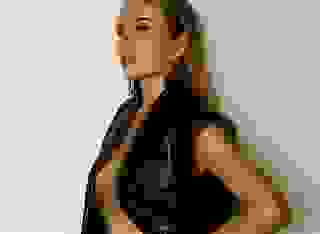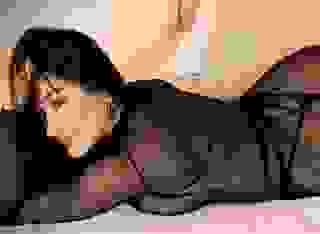- Loving Wives
- In Health
- Page 2
Note: You can change font size, font face, and turn on dark mode by clicking the "A" icon tab in the Story Info Box.
You can temporarily switch back to a Classic Literotica® experience during our ongoing public Beta testing. Please consider leaving feedback on issues you experience or suggest improvements.
Click hereKat helped me in ways even more personal than that, albeit not physical ones. She and I would stay up late through the night talking, either in person or on the phone. We became very close; other than Chloe, I don't think I had ever had the kind of connection that I did with her. We were two soldiers in a foxhole, facing an enemy we could never beat, trying to stave off the depression of fighting an unwinnable war together.
I have no illusions about the extent of our closeness: within a few years, we were having an emotional affair. We shared things we never could with our spouses, not only because we had no one else to share them with, but because we understood both each other and our struggles on a level that no one, even Chloe and Dale, could ever comprehend.
Many times we shared things about our spouses, the pain that they were going through, and the mortifying guilt we felt for our resentment of them and their pain. The selfish anger at never having lives of our own, offset by the impotent rage that our spouses would soon have no life at all. The voices in our heads that told us "no one would blame you if you walked away," while also knowing that we could never live with ourselves if we did. The fact that even contemplating such a betrayal only made us more miserable.
We spoke of the things that could never be said to Chloe and Dale, and we trusted each other to keep these shared, shameful secrets. We were, in our own way, as intricately and completely linked to each other as we had ever been to our spouses, and this was a source of both strength and yet more guilt for both of us.
It was an emotional affair that our spouses knew existed, even though none of us called it that. This was a kindness they did for us, their long-suffering partners. It was one of the few that they could, a small gift of hope to ease our despair. In the back of all of our minds was the possibility of what would come when Chloe and Dale could no longer fight, and they encouraged our closeness so that we would have someone to turn to in those dark days.
It was during one of our late night talks over coffee that Katrina brought up a possibility I'd long since decided against.
"If Chloe has said you can find comfort elsewhere, then why not?"
I sighed. "Because I'm just not built that way. I need to feel... close to someone. Hookups have never done it for me."
She chuckled, those sapphire eyes mocking me slightly. "Are you saying we don't have a connection? I'm hurt."
"You know that's not what I'm saying. I..." Taking a sip, I collected my thoughts; then, taking her hand, I explained them. "You're lovely, Katrina. Wonderful. Yes, we have a connection. If things were different, I'd love to explore it. But I'm just not... I can't let go of my vows." She started to speak, but I pushed through. "Yes, even if Chloe says I can. I didn't just make the vows to her, I made them to myself."
Katrina smiled sadly, tilting her head to one side. "She's so lucky to have you, Nate. I wish... I wish things could be different. I'm wired the same way. Needing a connection, I mean; Dale offered this to me years ago, but I could never find someone I wanted to be with. And now you're here, and..." She shook her head and lifted my hand to her lips. "Another life, maybe."
We were entering the endgame of our spouses' disease, fifteen years since their prognoses, and we both knew it. Another life could come sooner than we thought, but it felt ghoulish to openly admit. I'm not saying that we bided our time, waiting for this unseen monster to claim our spouses; we were just friends and always acted with propriety around each other. But we also both knew that, right or wrong, our lives would change very quickly some short time in the future.
And then they did change, but not in a way any of us could anticipate.
A miracle happened. The technology called "CRISPR" had shown great promise in treating a number of diseases with a genetic basis; it allowed for direct editing of the genes that caused the problems, in essence patching the source code of the body.
It had successfully been used to treat other forms of muscular dystrophy, but we didn't hold out hope that a treatment would reach even experimental trial stages for Chloe and Dale's type before it was too late. Theirs was one of the rarer types and far down the list of priorities.
But, as often happens in modern medicine, a confluence of money and power changed the priorities: a wunderkind researcher's wife was diagnosed with it; a prominent venture capitalist's son; a powerful senator's granddaughter. With these personal tragedies came funding and visibility, and a breakthrough followed far faster than any of us could have anticipated. Experimental trials were started. My time in the healthcare field and all the attendant connections paid off; I was able to get both Chloe and Dale in.
When I say it was a miracle, I don't just mean that the treatment came about so quickly. I mean that it was unbelievably effective. Within a month of beginning treatment, Chloe was working with a physical therapist to get back to her cane. Within three months, she was working to walk unassisted. And within six months, she set foot on a track again for the first time in almost fifteen years.
Dale's recovery was similarly swift, and we all celebrated our triumph against this specter that had plagued our lives for a decade and a half. Our friendships grew even closer as we slowly reentered the world in a way none of us had been able to in years, dining and drinking and dancing, something none of us ever thought we'd do again.
Katrina and I were both slightly embarrassed by our notions of what might have been, seeing them as a disappointing lapse during a time of weakness when we were both at the end of our tethers. Nothing had happened, but that we had even talked about it as a possibility felt disloyal.
When I made love to Chloe for the first time in nearly a decade, it was tentative and halting. I had gotten so used to the notion that I might hurt her, manipulating a limb the wrong way when she was too weak to push against me, that I still hadn't entirely internalized that she was strong again. But once we got past those first fumbling touches, we dove headfirst into the physical love that had been denied both of us for too long.
When we finished that first time, there were tears in her eyes as she clung to me. "I missed this, missed you so much, Nate. I never thought--" She wept openly. "-- Never even dreamed we'd be able to do this again. That I could be the wife you deserved. You..." She stroked my face lovingly. "... I never would have made it through this without you. You have been... God, baby, I don't know how you were able to be so strong. I love you, Nathan. I'll love you forever."
I wish I could say that we made love every night and fucked every morning. I would have liked to, but the realities of my sexual abilities on the wrong side of forty, the back injuries I'd sustained caring for her, and a body that had been neglected through bad diet and insufficient exercise meant that I simply couldn't sustain the level of sexual abandon that both of us craved.
As Chloe's recovery continued, she ran. That was when we learned exactly how much the disease had taken from her, and for how long it had. She was fast, and over long distances she was every bit as fast as she had been in college. The disease had probably affected her since she was a teenager without anyone realizing it; we both suspected she could have been an Olympian if treatment had been available then.
The knowledge that the disease had stolen not just the previous sixteen years from her but also the person she could have been before was a staggering blow. For someone who had been so driven, learning that she'd had that kind of possibility taken from her for so long only made her push herself harder. I didn't realize, when it started, that she was also beginning to push me away.
Chloe began to train for marathons. I tried to join her, but I couldn't even vaguely keep up. Even before my back injury, I was far slower than her, and while the exercise helped with my injury, it still slowed me down. She switched to training with a group. Making new friends. Seeing how male eyes looked at her in the way they hadn't since we were newlyweds; perhaps even more covetously, given her body and stamina compared to other women over forty.
Able to finally re-enter the job market, she went back into marketing. The time away hurt her somewhat, but it was an industry that shifted much more slowly than my own. Technologies changed a little, and techniques did, too, but the core skills hadn't changed enough in a decade to invalidate her knowledge. Within a year of first receiving treatments, Chloe was a rising star at her firm.
She was a rising star elsewhere, as well. In the muscular dystrophy community, she was seen as a shining exemplar of what could be accomplished post-treatment. She was the light at the end of the tunnel for those awaiting regulatory approval for the experimental treatment that she had received.
We regularly received letters from other sufferers of muscular dystrophy relating how her story helped them hold out hope that their suffering would soon come to an end, that they'd be able to be the people that had been stolen from them. It touched us both deeply, and I would sometimes find Chloe crying at our kitchen table with a letter from one of her admirers clutched in her hand.
I was a lesser star, the stalwart and inspiring husband who had carried her through the darkness, but we both knew that I was the supporting cast member in the public's version of her life. It rankled me, just a touch, that I was seen as almost an afterthought. When she was interviewed, I would warrant a few paragraphs, mostly focused on how I supported her or fought for her to receive treatment.
If my suffering was mentioned, it was always cast in a light that made Chloe look better; or, if a writer was particularly clever, as a parallel between how my health had suffered as hers had. Occasionally what I had to go through or what I had to give up would be mentioned, but only as a way to sell the overall pathos of Chloe's story.
It sounds petty; it was. But I had suffered, too, and I had suffered knowing that I could have left at any time, but didn't. I knew that they were mostly feel-good pieces and meant for either the general public or fellow sufferers. I understood why the focus was what it was, an attempt to give hope. Detailing the realities of her husband's struggle took away from that. It wasn't about me.
So little was.
She traveled as part of her job. She traveled to speak. She traveled for marathons. All but the last of these was paid for by her work or a charitable organization. Her friends in her marathon groups would cover those trips, wanting to bring their lucky charm along; the men seemed to contribute the most. Our massive debt meant there was no way to swing me joining her on any of these excursions.
When Chloe was home, she was attentive, but that rarely translated into happiness. Now that she was back to 100 percent-- no, 110 percent, the version of her that she could have been if she had never been ill, that she hadn't been able to be even when she was young-- she had little sympathy for my aches and pains.
Never mind that they were gained in service to her. Never mind that not all of us had the genetics-- outside of one rogue allele-- or the drive to be a star athlete. She wanted to be up and about and moving, either literally out and hiking again, or metaphorically trying to make up for the time lost to her disease with late nights spent carousing like a twentysomething.
I understood that, but it wasn't what I wanted. She had her miraculous recovery, but there would be none for me, no experimental treatment that would undo the slow degradation of time and stress and physical labor and sleepless nights. Nothing could undo the wear and tear that supporting her had put on my body.
I craved respite after nearly two decades of struggle and strain that saw me sacrifice the best years of my life for her, sacrifice my chance at children and a happy home in exchange for... what? A wife who was never home? A life that would never be about me, still and always and only about her? I had earned some happiness, dammit, and if her happiness wasn't mine, she should bend to my needs for once!
She tried sometimes. She couldn't stop moving, couldn't stop indulging that restless urge to try to make up for a decade and a half locked in a cage of flesh. When trying to make me happy, she channeled it into our bedroom. The pleasures of her body had been denied to me for so long, and that was where she tried to show me that there was a place for me in her new life, a joy that she would share with me and me alone.
Chloe was athletic and inventive; there were things we'd never gotten to before the disease claimed her health that she'd been wanting to try for a long time. But even that widened the gap between us. Her health was good. Mine wasn't, and that translated to disappointment for her, which made me question my own manhood.
That disparity was exacerbated as her sex drive heightened, due both to our age and her improving strength and stamina. She wanted more than I could give, and frustrating nights spent listening to Chloe's battery operated friend guiding her to orgasm in the guest bedroom after I had failed to meet her needs were intensely demoralizing. I had at least tended to my own when she couldn't quietly and in the shower, doing my best to not make her feel the pain of my disappointment in our lack of a sex life. She didn't even give me that small bit of discretion. I don't know if it even occurred to her to try.
On the night of our twentieth anniversary, she had just returned from two weeks of travel. A pair of work trips with a marathon in between had been capped by a weekend being an inspiration for the people suffering from muscular dystrophy in... wherever. I had long since lost interest in the particulars, because she didn't seem particularly interested in sharing them with me.
But that night, Chloe was home. She was beautiful. It was a huge milestone, one we hadn't been sure we'd see, and we both went all out: gifts that we could still ill-afford; a night spent dining and dancing as she preferred; making up for two weeks apart with slow lovemaking and vigorous fucking.
Nothing was off the table for me sexually that night; it rarely was, but she made sure I knew it and availed myself of it. Every hole, every desire, every fantasy we'd indulged in and a few we'd never found time for: she gave her body to me in any way I chose, enthusiastically engaging with all requests. For the first time in a long time, my wife seemed truly sated after our lovemaking. She laid in bed with me afterwards, the sounds of our breathing filling the room. Mine was more ragged than hers; it always was by then.
"I love you, Chloe."
She pressed her face into my side without initially replying. I thought she might have fallen asleep, but she finally said, "You're such a good husband, Nate. I hope you know that. I need you to know that. I'm so grateful for... for everything. I never could have..." My wife looked up at me, tears in her eyes. "You deserve to be happy, Nate. More than anyone." Then she settled in, hugged me tightly, and began to lightly snore before I could respond.
Chloe hadn't said she loved me. She'd said more, but also less. It bothered me, but I was so tired and blissed out that I let the worry fade from my mind as sleep took me.
My wife was gone in the morning.
There was a letter on the kitchen table. Her rings rested on top of it; beneath were a pair of folders. With shaking hand, I picked up the letter, letting the rings slide off and roll away, lost somewhere in the early morning gloom.
My dearest Nate,
I'm so sorry. I will never have the words to express how deeply disappointed I am in myself. You have been everything a reasonable woman could ask for. More than that. Much more. You saw me through the worst thing that could ever happen to a person, and I know that I would not have made it without you. I will be forever grateful for that.
That all makes what I have to do now even more monstrous. I need to go and live my life again, just for myself. I can't explain the depths of this need to you, Nate. I thought I was going to die. No, I was going to die, if you hadn't gotten me into that trial. Another thing I can never thank you enough for.
But now I have my life back, and my health. I know that we've drifted as that's happened. I also know that most of that is my fault. But I see now the possibilities that exist for me out there, and I just can't spend another two decades with you simply because of gratitude and a memory of what we once were.
I do love you, Nate. I always have, and I always will. But I don't love you as a wife should love her husband anymore, and I find myself resenting you more and more as time goes by. I know that's awful of me to say or even to feel. But it's the truth. It's not fair to you, but neither is what happened to me. And I need to leave our marriage before the resentment twists that love into hate.
I don't say this to hurt you, but I have to tell you to make it easier to let me go: before my diagnosis, I had already been considering leaving our marriage. I loved you, but I could see that the goals I had for myself didn't align with what you really wanted out of life. When we learned about my disease, I was so afraid of being alone that I never said anything. It was cowardly. I am cowardly. I know that; this letter goes even further towards proving it. I couldn't even say these things to you in person.
You are the perfect husband for someone, Nathan. For a time, you were the perfect husband for me. And somewhere out there, you will find a woman that is your forever love, that will fit you perfectly and care for you in all the ways that you deserve. I am sorry that it's not me, both for myself and for you. I hope you believe that, because it's the truth.
I know you will probably hate me. I don't blame you for that; I hate myself for doing this. But in time, I hope that hate will pass for both of us. You deserve to be happy. We both do. But neither of us was going to be if I had stayed.
I do want you to know that I have never cheated on you. I am not leaving you for another man. I have been tempted, and that temptation is one of the things that led me to reevaluate both who I was as a person and what I wanted out of my life. It also made me think about what I could honestly offer you. But of all the vows to you that I am breaking right now, that is not one. I was loyal in this way, if few others.
Please do not look for me. You're so, so smart, and I know you could easily find me. I don't plan to hide away. But I've taken a new job in California, and by the time you read this, I'll already be on my way. I've taken only some clothes, a handful of personal belongings, and a few mementoes of our time together. I could never forget you, but I want to keep them with me as a reminder both of the wonderful man I was once married to and to remind myself of the cost of my selfishness. I deserve that.
I know also that my illness has left us in dire financial straits. I'm unsure of the full extent; you've always handled those details. I leave it in your hands what to do with the assets we have left. I've taken two thousand dollars from our savings to get started on my new life. Everything else is yours. I know you've talked about bankruptcy in the past; if that is what you deem best, please proceed.
With this letter, you'll find both an initial divorce settlement proposal and a power of attorney; my lawyer has been advised to give you anything that you want, and to follow your lead on how to proceed financially. He's working pro bono, so his time is limited, but he'll help however he can.








